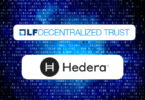In the past year, South Korea has seen several decentralized identity (DID) initiatives launched in the country. One of the major industry associations is the Decentralized Identity (DID) Alliance Korea, which aims to take charge of self-sovereign identity in the country and have an impact globally.
Established in 2019, the DID Alliance is working on developing a standardized and interoperable framework for verifying identities. Its membership includes some of the country’s biggest banks and card companies, as well as Samsung and LG.
During the last decade, Korea suffered numerous data leaks from credit card companies such as KB Kookmin, NongHyup, and Lotte. If personal data resides in silos, when compromised, it leads to the loss of data affecting millions of people. Hence the inclination towards DIDs and self-sovereign identity, which puts control of personal information back into the hands of users.
In an interview with The Korea Times, DID Alliance Korea Chairman Kim Yeong-rin outlined the progress the organization has made and future plans.
“Korea needs to lead the global discussion on the decentralized ID fully backed by its competitive IT technologies, prompting other nations to follow our lead in the development and implementation of the necessary systems,” said Yeong-rin.
The DID Alliance’s global ambitions
The DID Alliance was founded by IT firm Raon Secure’s CEO Lee Soon-hyung and Ramesh Kesanupalli. The latter is the co-founder of Fast IDentity Online (FIDO), which aims to reduce the reliance on username and password-based logins. The replacement is commonly used cryptography. FIDO’s technological know-how plays a vital role in the development of DIDs by the Alliance.
An initiative that shows the Alliance’s ambition is the Global Association for Digital Identity (GADI), which it launched late last year. GADI is a certification system that links the physical identity of an individual with their digital identity.
At launch, Kesanupalli compared GADI to ICANN, which is responsible for the global domain name system of the internet.
“ICANN enables a global internet where every address is unique and authentic. Similarly, GADI will assure verifiable, authorized identity for every individual on the globe, whether online or in physical world applications,” said Kesanupalli.
“The DID Alliance, through GADI technology, will connect human identity to digital identity. Its international, collaborative network of global partners is focused on solving problems including data and privacy breaches, while also looking to remove fundamental identity issues that prevent access to basic rights.”
Additionally, Raon Secure has developed the blockchain OmniOne Network which will be rolled out later in July after trials.
Currently, the Alliance has 62 members, including the Korea Financial Telecommunications & Clearings Institute (KFTC), LG CNS, NH NongHyup Bank, Samsung SDS, Samsung Card, Shinhan Bank, and KB Kookmin Bank. South Korea’s Military Manpower Administration has also adopted the DID technology developed by the Alliance.
Korean identity competition
Separately, the KFTC, which runs payments infrastructure, has launched blockchain-based digital IDs for financial services based on W3C standards. At the time, it said that over 30 firms had signed up to use the solution.
Nonghyup Bank (NH Bank) recently introduced blockchain-based ‘Mobile Employee ID’ using technology developed by the ‘Initial DID Association’.
This Initial digital identity consortium is also significant and backed by the Ministry of Science and ICT and the Korea Internet & Security Agency (KISA). Members include all three major telecoms firms SK Telecom, LG Uplus and KT, as well as Hyundai Card, BC Card, Shinhan Bank, Samsung Electronics, KEB Hana Bank, Woori Bank, CJ Olive Networks and Koscom.
Last but not least, Korean startup ICONLOOP is also working on blockchain DIDs and has launched the ‘my-ID’ service.






